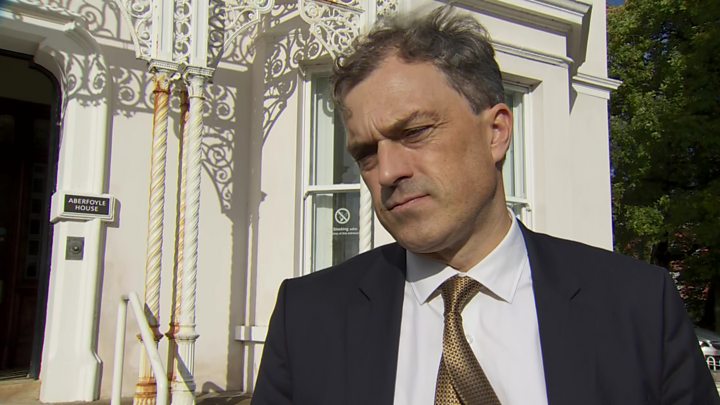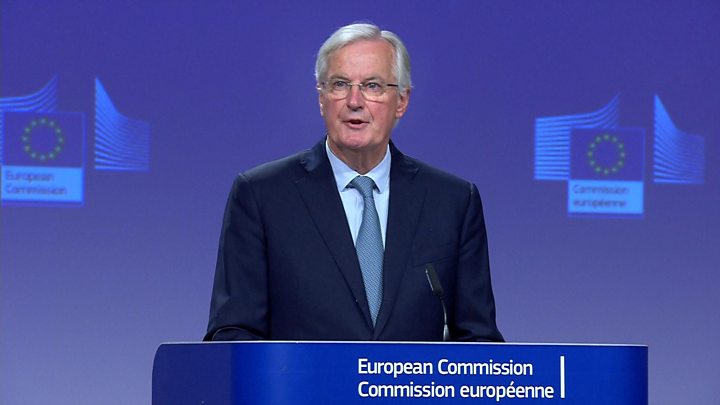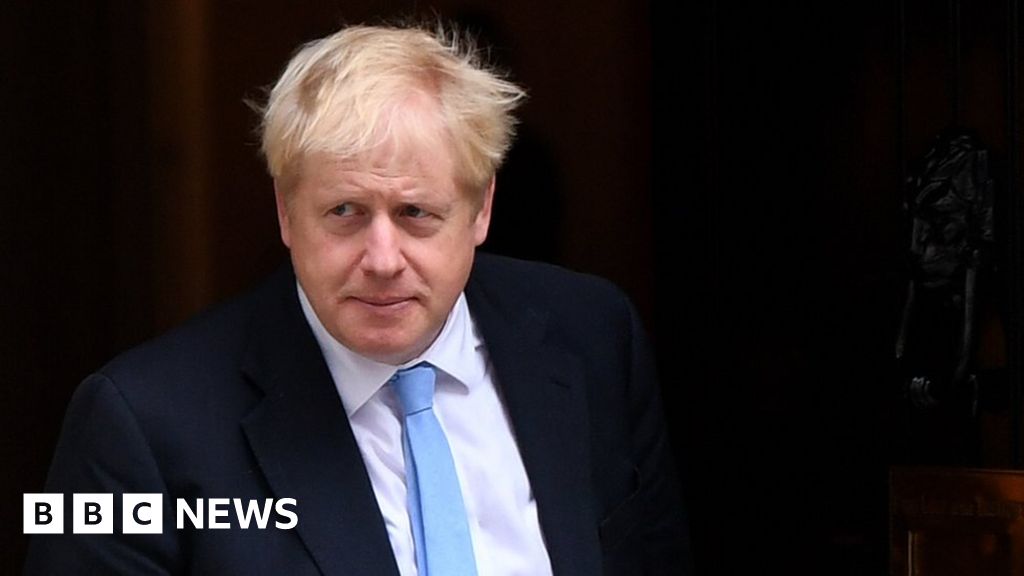LONDON — The U.K. and European Union announced Thursday they had agreed to a new Brexit divorce deal, a potentially key breakthrough ahead of the Oct. 31 deadline for Britain to leave the bloc.
However the deal must still be ratified by European leaders and lawmakers in the British Parliament.
And getting the support of U.K. lawmakers appears a particularly onerous task for Prime Minister Boris Johnson, who is set to put his deal to a rare weekend vote in the House of Commons on Saturday.
The Democratic Unionist Party — a Northern Irish group who have acted as allies to Johnson's Conservatives — told NBC News on Thursday that they would not be supporting the plan in its current form.
"As things stand, we could not support what is being suggested," a DUP statement said before the deal, citing disagreements over trade, taxes, and their ability to opt-out of certain parts of the arrangement. After the announcement, a spokesperson said that "our statement still stands from this morning."
They disagree with how Johnson's deal seeks to resolve the problem of Northern Ireland, which has remained a key sticking point throughout the chaotic Brexit process.
Losing the DUP's support will make getting the deal through Parliament even harder.
Johnson needs the DUP's backing because his Conservative Party do not have enough parliamentary seats to govern alone. Now he may have to look to moderate Conservatives — several of whom were kicked out of the party for opposing his Brexit strategy — and even members of the opposition Labour Party.
Labour leader Jeremy Corbyn quickly released a statement, however, saying his party would not support Johnson's plan.
"From what we know, it seems the prime minister has negotiated an even worse deal than Theresa May’s, which was overwhelmingly rejected," he said referring to the former prime minister's deal, which was voted down three times by the House of Commons.
Before any of that, however, the deal will be tabled at a summit of the European Council — comprising the leaders of each E.U. member state — which kicks off in Brussels, Belgium, later on Thursday.
The possible breakthrough came after negotiators from the U.K. and Europe have been hunkered down in talks inside Brussels' imposing, modernist Berlaymont building.
Both sides hope that the deal, which looked unlikely just days ago, will break the deadlock that has paralyzed British politics since the country voted to leave the E.U. in a June 2016 referendum.
"Discussions over the past days have at times been difficult. But we have delivered, and we have delivered together," the E.U.'s chief Brexit negotiator, Michel Barnier told reporters.
However, on the subject of whether the deal could win the support of British lawmakers he was noncommittal.
"I've done my work, my team have done their work," he said. "But the House of Commons will have to take that decision, as is their responsibility."
Johnson has staked his leadership on a promise to leave the E.U. on the current Oct. 31 deadline with or without a deal.
But rebel lawmakers passed a law forcing him to seek an extension if a deal had not been agreed by next Saturday, in an effort to prevent a "no-deal Brexit" that could have devastating consequences for the country.
At this weekend's parliamentary session, the prime minister will likely need to convince some of his opponents that his Brexit plan is better than the alternatives: Keep delaying the process, risk crashing out of the union without a deal at all, or cancel Brexit altogether.
The prime minister has already been dealt a series of defeats in Parliament and saw his efforts to shut it down in order to force through his hardline Brexit plans ruled unlawful by the U.K's Supreme Court.
His predecessor, May, failed on three occasions to win support for a deal she had agreed with the E.U., leading her to resign earlier this year.
https://www.nbcnews.com/storyline/brexit-referendum/u-k-e-u-agree-new-divorce-deal-key-brexit-n1066381
2019-10-17 11:31:00Z
CAIiENJzYdQoj9kb0d3EpkuC9qsqGQgEKhAIACoHCAowvIaCCzDnxf4CMM2F8gU




